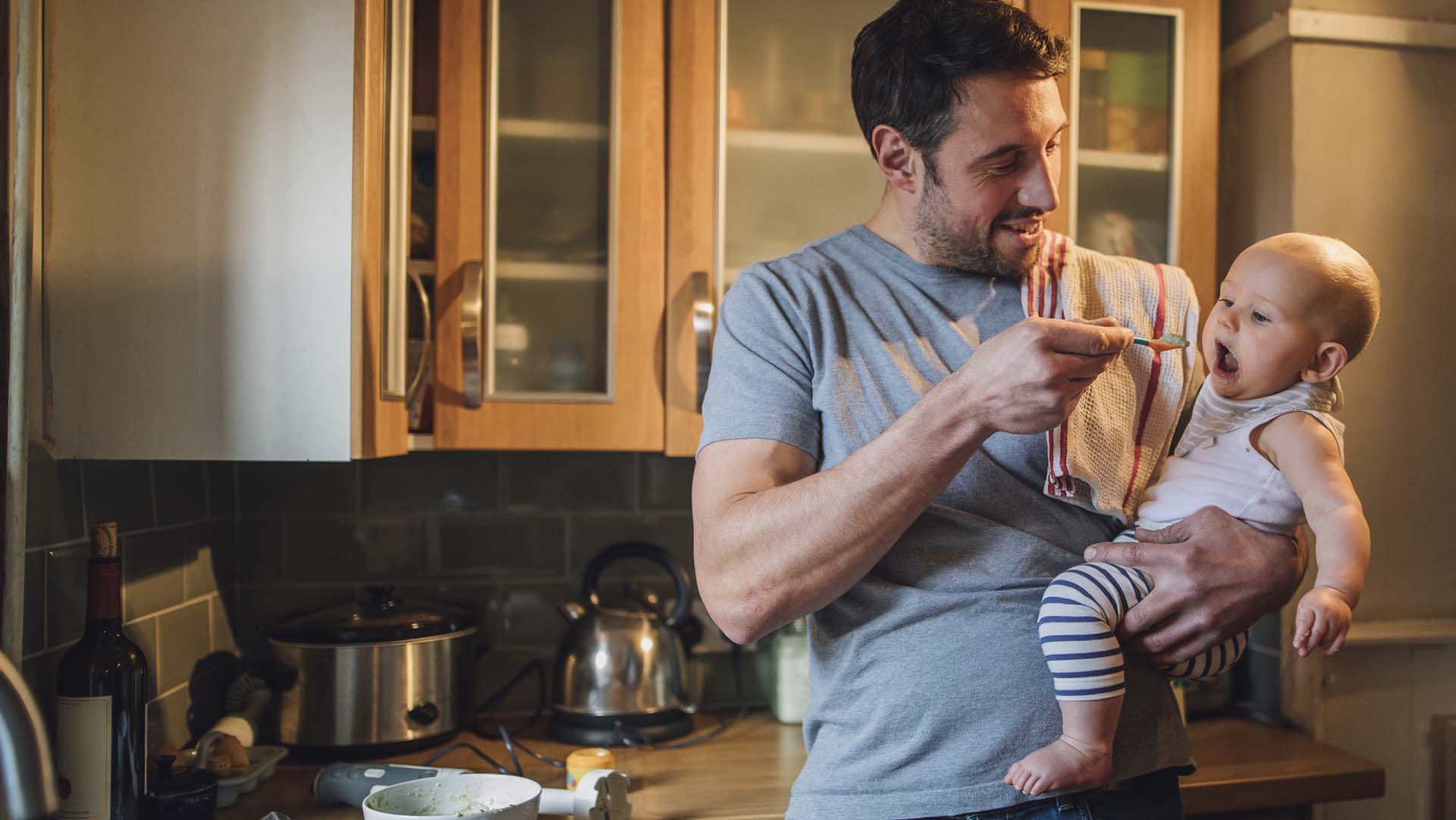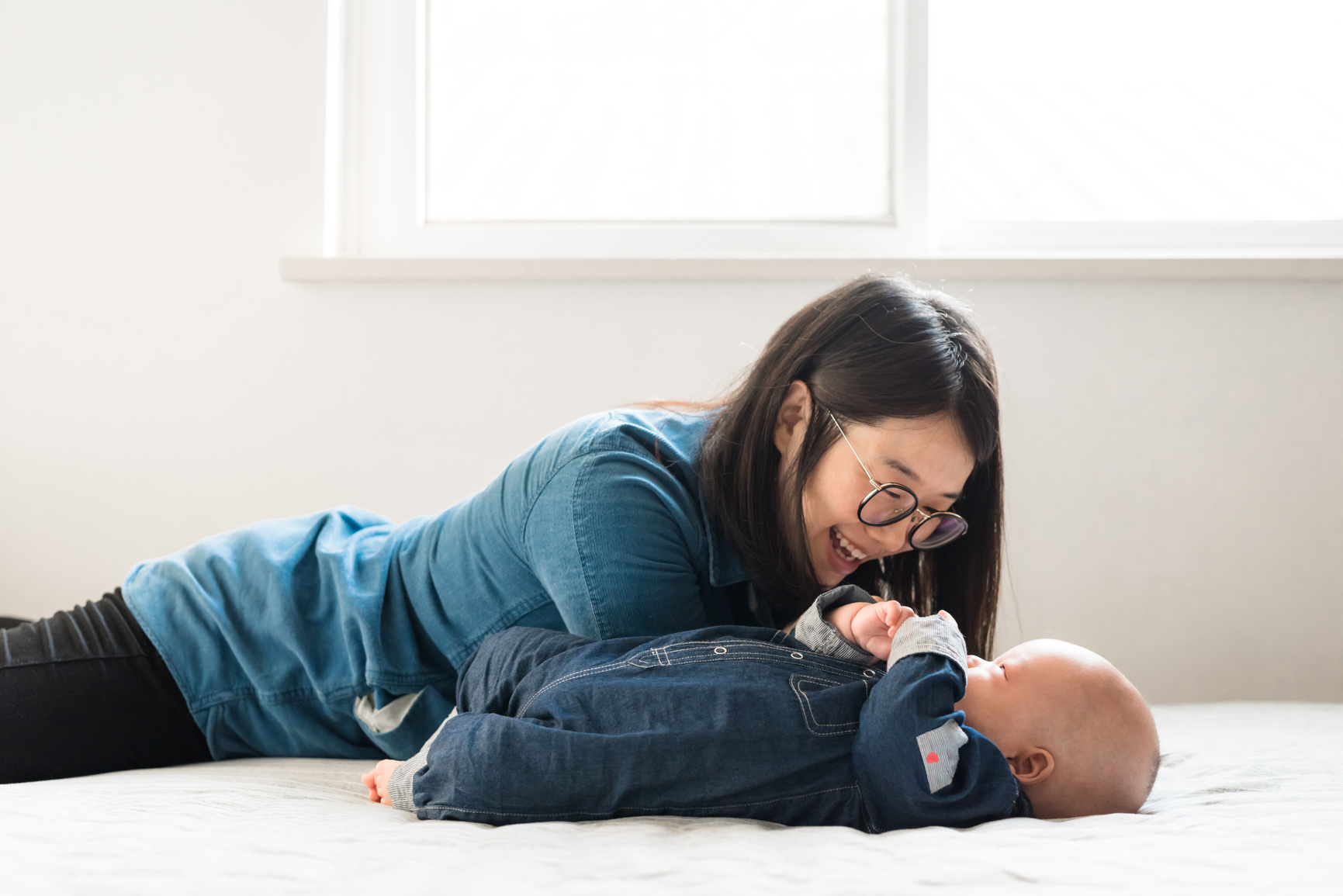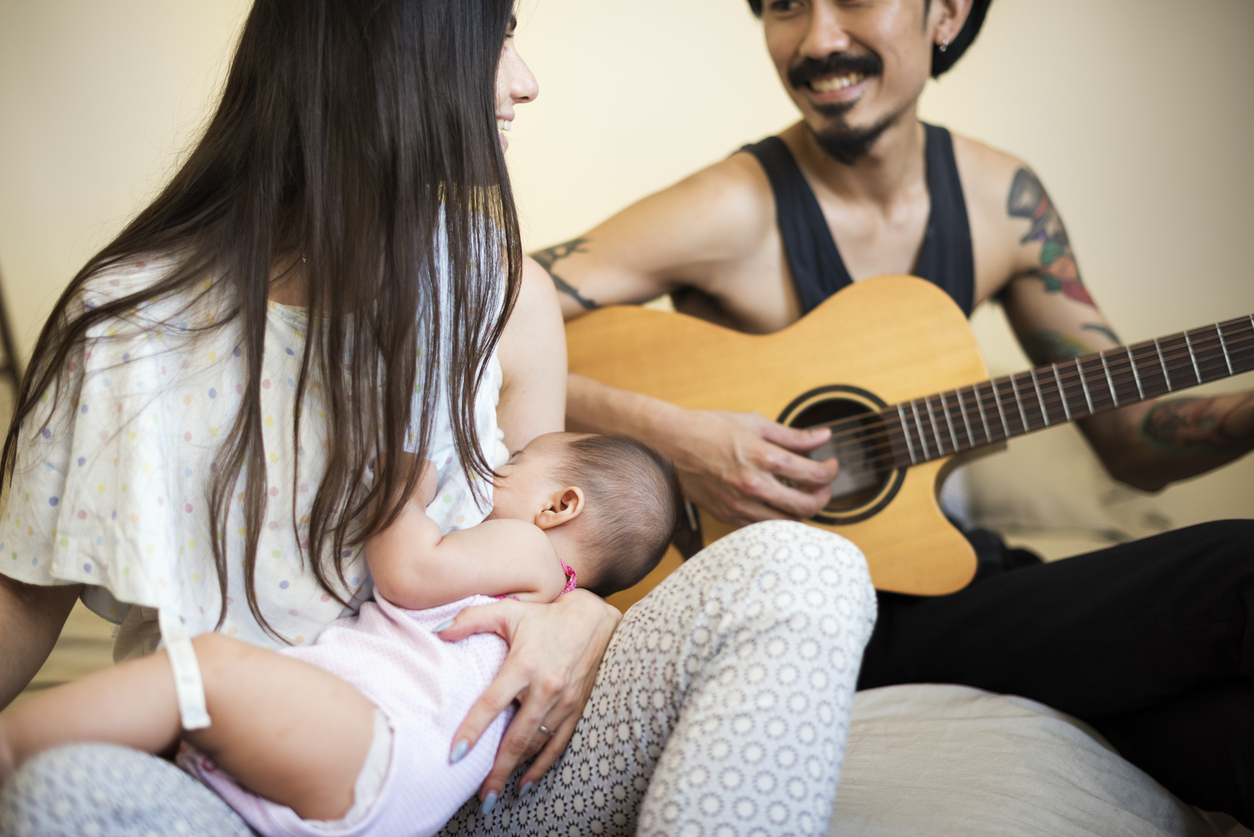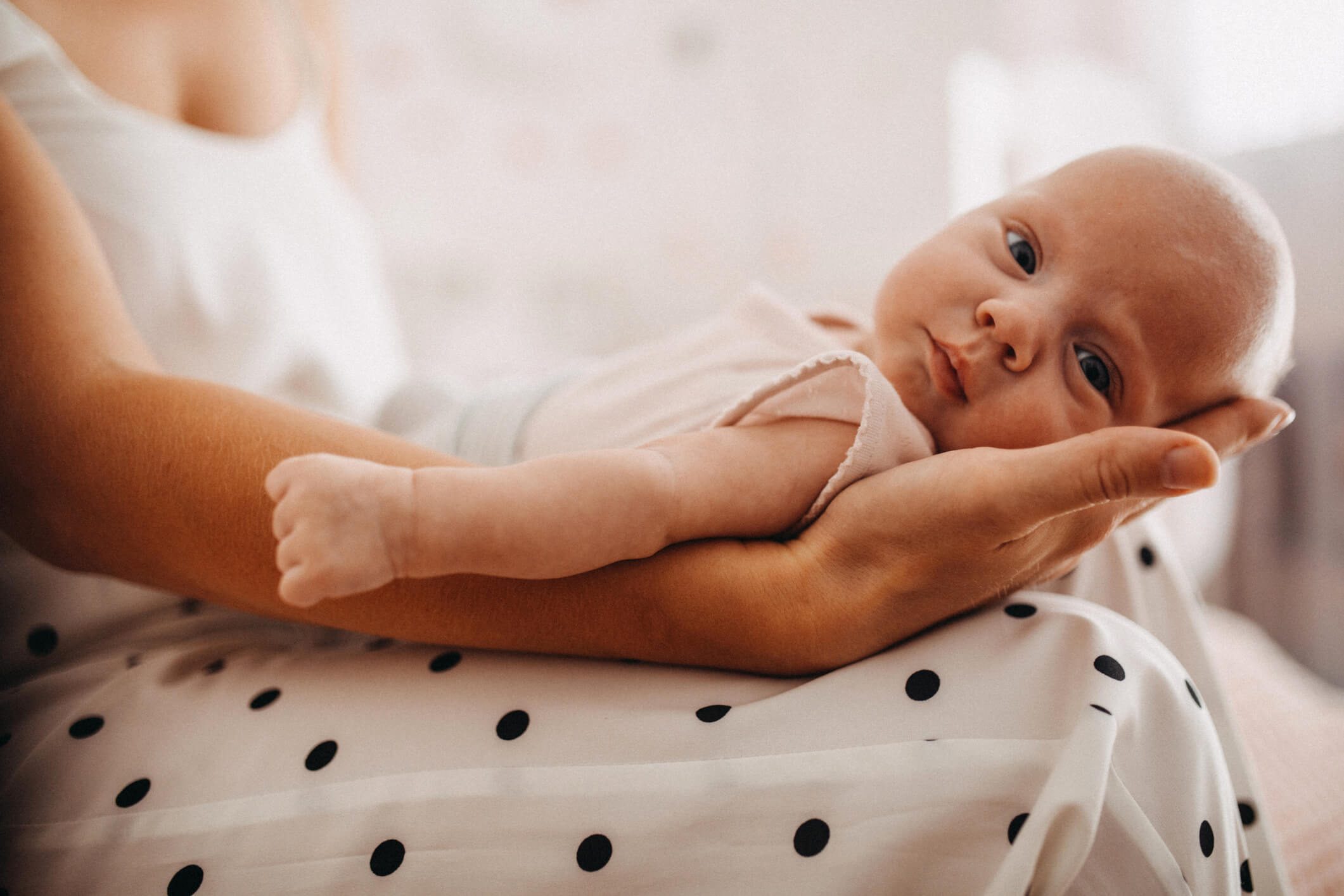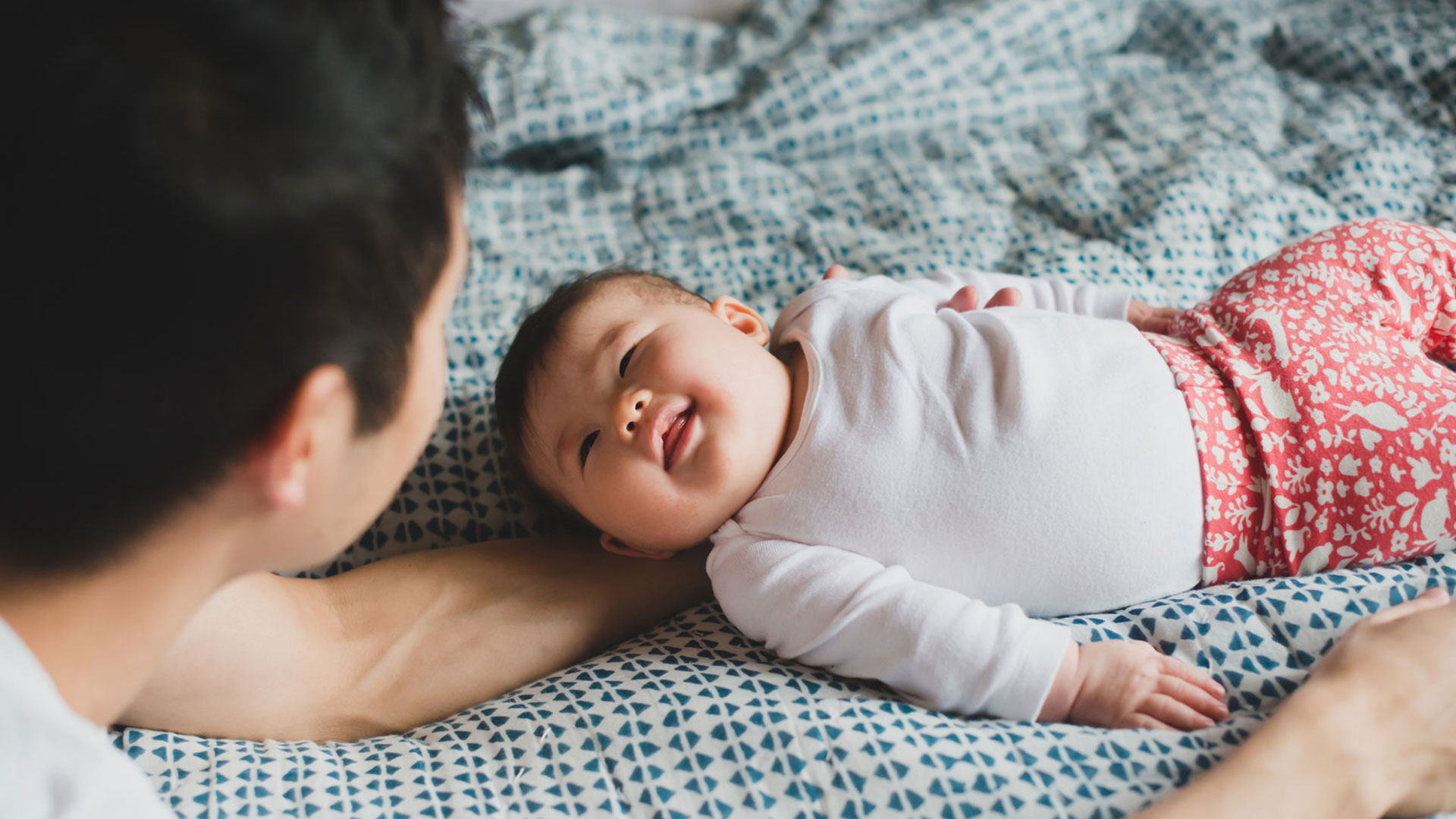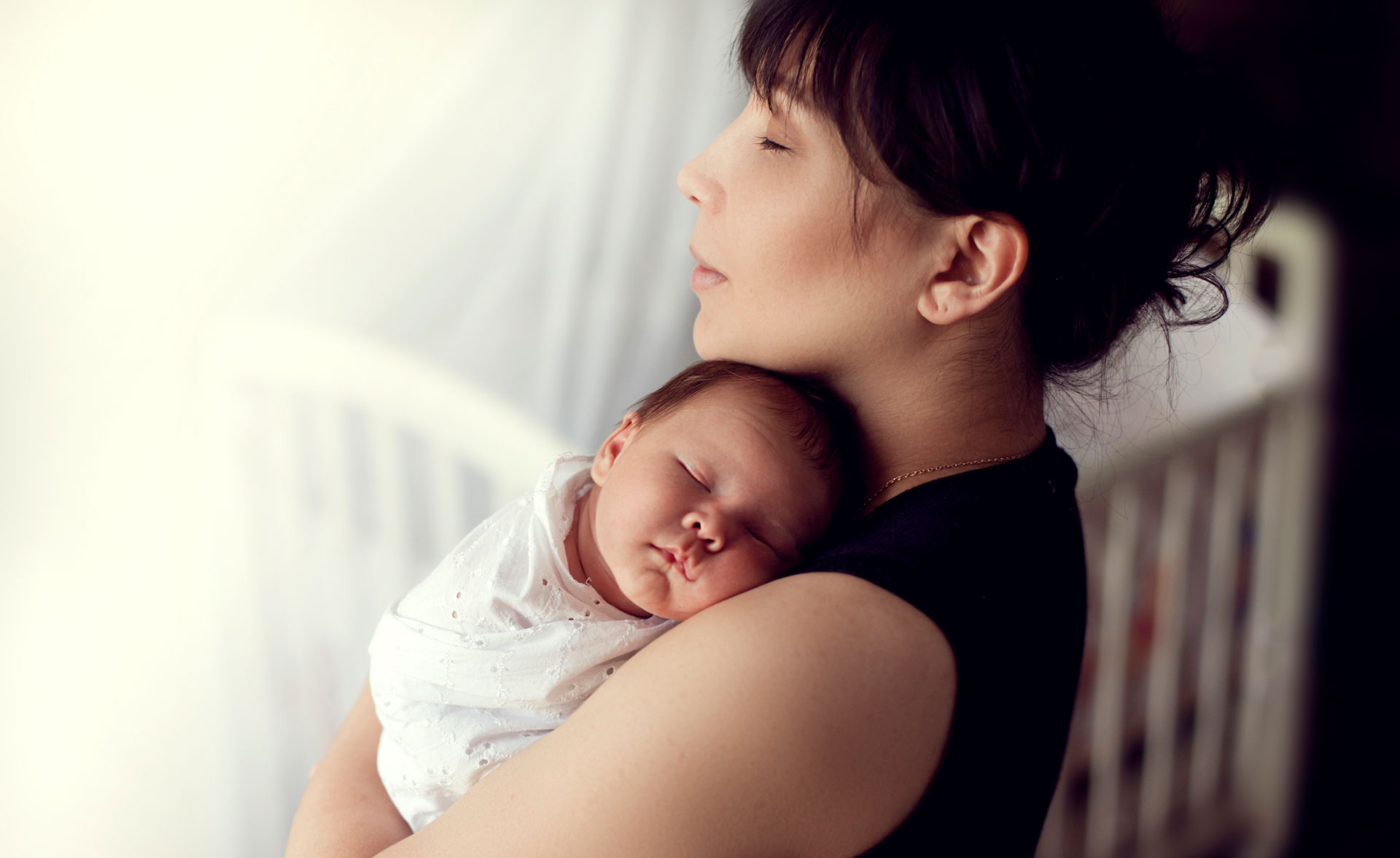-
1 MONTH
All babies are born thinking they are the entire universe. They can see clearly to the tips of their fingers and receive signals from all five senses, but can’t yet tell the difference between themselves and the world. As a glucose-driven growth-spurt occurs in the brain, it cues the first major developmental ‘leap’, says Dr Plooij. “Certain parts of the brain suddenly increase in volume and become operational, giving babies a new perceptual world.” This causes them to become more alert and sensitive, expressed by their first real smiles and tears. Sensations change and now, instead of just hearing a voice, a baby can ‘tune in’ to it.
2 MONTHS
Once babies realise there is a world around them, the life-long process of trying to understand that world begins. At around this time, their brainwaves change and a second, sudden increase in brain size takes place. Instead of sensing everything as one big mash-up of sight, sound, smell, taste and texture, sensations start to become separate and distinguishable. Babies now recognise simple patterns, such as leaves on a tree, or shadows on a wall. They notice that they possess hands and that hands can be useful. Their automatic newborn reflexes are left behind, as they are able to make purposeful movements for the first time.
3 MONTHS
Greek philosopher Heraclitus said “change is the only constant in life” and at this age babies start to grasp that things around them don’t always stay the same. The brain undergoes another leap in size and function and taps into the idea of ‘smooth transitions’. Babies begin to notice things like curtains moving in a breeze, and the pitch of a voice rising and falling when someone is singing. The world seems to be in constant flow. At first this is unsettling, but it’s not long ’til babies themselves become ‘smooth-operators’: their own limb movements stop being so jerky and they start to display a sense of humour.
Babies now recognise simple patterns, such as leaves on a tree, or shadows on a wall. They notice that they possess hands and that hands can be useful.
5 MONTHS
Nothing is predictable for babies – everything they experience is brand new. Until their brains make the next mental leap, a baby assumes nothing. They have no idea that, once dropped, a rubber ball will bounce back up.
As their brains gain a new set of perceptive abilities, babies start to cotton on to what might come next with short, familiar events. They know that the spoon loaded with porridge will travel to their mouths, so they gape in anticipation. They might also attempt some simple, predictable events for themselves. Hitting and grabbing at things are suddenly irresistible (spec-wearers, beware!)
6 MONTHS
Not everything babies see, hear or smell is within their reach, but it’s not until this age that they understand that. As the brain takes another leap forward, babies discover that things have spatial relationships, and they become aware of ‘distance’. They recognise that a ball is under a chair, beside a table, across the room. Suddenly, the world is a very large place and this can be frightening and frustrating for someone who can’t walk or crawl. Less scary for the baby, is the discovery that there is a connection between words and actions. They will soon use this relationship to learn to speak.
9 MONTHS
Babies can already recognise many objects, sounds, smells, tastes and textures, but now they start to group familiar things into categories. Figuring this stuff out allows babies to become ‘streetwise’in their own little worlds. A banana and spinach are both ‘food’, but a book is not – though it still may need a chew. Intense scrutiny starts to occupy much of their time, as they work hard to categorise things with their five senses. Babies can have nightmares now, too, explains Dr Plooij.“They have once again entered a new perceptual world. It is like waking up on another planet. There are so many new impressions to make sense of; it would be frightening for anyone.”
An anti-destruction switch seems to flip. Babies who have been previously obsessed with obliterating everything in their paths cease some of their ruin to put things together.
11 MONTHS
An anti-destruction switch seems to flip. Babies who have been previously obsessed with obliterating everything in their paths cease some of their ruin to put things together. Their brains are beginning to grasp the concept of ‘sequences’ and they now understand that actions can be linked together to reach a goal. They are suddenly more aware of their own actions and appear to stop and think before doing something. The sequence of seeing something and naming it, or naming something and pointing at it becomes great fun, and an important early language skill.
12 MONTHS
By now, babies have already figured out that actions can be linked together into sequences, but around this age they also discover that sequences can be linked together into everyday ‘programs’. They understand that putting clothes into a washing machine, running the machine then hanging the clothes out to dry is ‘doing the laundry’. They see that what comes next can depend on what just happened, instead of everything simply occurring on autopilot. Babies are now raring to try out their own programs, but their physical abilities and communication skills are limited and their fuses are short. They can’t yet understand ‘waiting’, so temper tantrums abound.
15 MONTHS
Babies love playing games, but right now they just want to know the rules. At this age they start to develop some basic principles, says Dr Plooij.“Babies now have the ability to perceive regularities in social interactions. It is important to learn that their families and other groups of people live by rules, because they too have to live and survive in these groups.” Social principles like eating dinner before dessert, or not playing in the rubbish bin, start to resonate. They realise they are able to make decisions and quickly put this newfound ability to work with plenty of negotiating, bargaining and expert nagging.
18 MONTHS
After 10 incredible leaps in brain development, babies are coming to the end of their ‘sensorimotor period’. Their brains have doubled in size since birth and all their perceptual and motor systems are now fully developed. An awareness of ‘self’ is emerging – ‘me’ versus ‘not me’ – and so is the first flicker of a conscience – behaviour that a baby consciously chooses. “The world is full of systems, such as the body or family,” says Dr Plooij. “This new ability to perceive systems allows for many changes.” Babies have once again entered a new perceptual world and will, once again, conquer it.
What’s really going on inside the brain of a baby
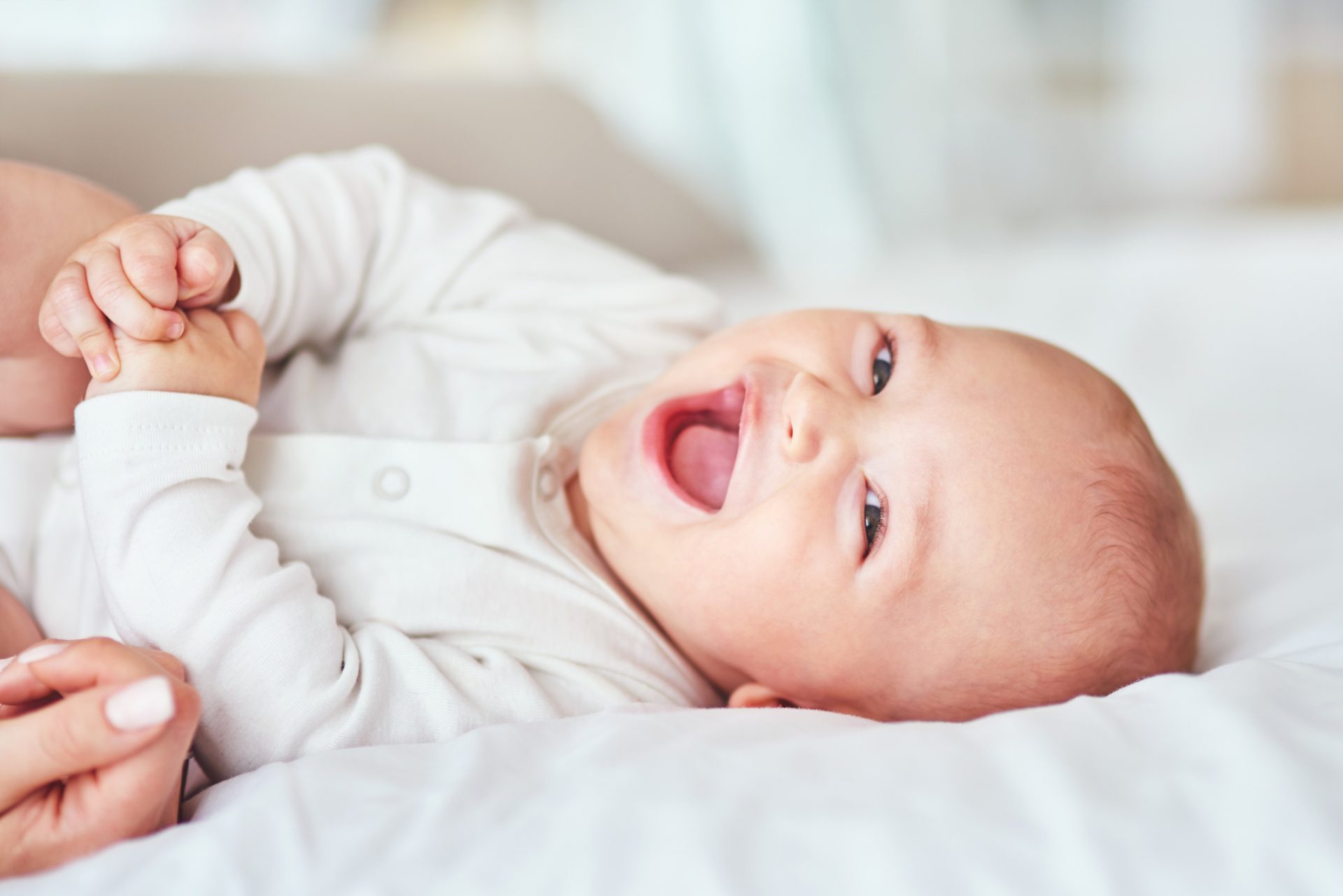
-
How to introduce allergy foods
A guide to weaning and allergies
-
Immunisation 101: everything you need to know
Make sure your baby is fully immunised
-
The partner’s guide to breastfeeding
How you can help with breastfeeding
-
Bringing home a new baby during a pandemic
Bringing home a new baby is an exciting yet challenging time.
-
Your new baby admin checklist
A simple guide to ticking off all the paperwork for your new baby.
-
Getting in a routine with your new baby
Paediatrician Professor Harriet Hiscock shares some advice for adjusting to life with your little one, from feeding to sleeping to checking in with yourself.
Subscribe to receive the best from Live Better every week. Healthy recipes, exercise tips and activities, offers and promotions – everything to help you eat, move and feel better.
By clicking sign up I understand and agree to Medibank's privacy policy

